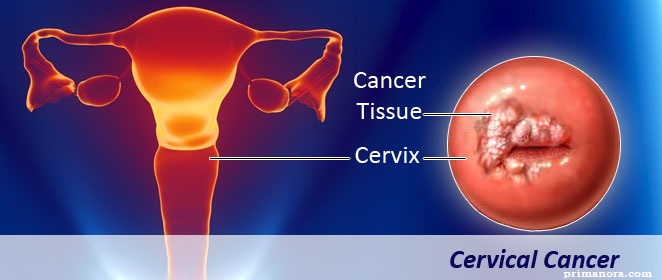

Fountain Valley Urgent Care Permanently Closed. We’re Here to Care for You at Our Other Locations.

 January is the month for cervical cancer awareness, which is both the fourth-most common cause of cancer and the fourth-most common cause of death from cancer in women. One of the most important preventive steps: getting screened based on age-related guidelines.
January is the month for cervical cancer awareness, which is both the fourth-most common cause of cancer and the fourth-most common cause of death from cancer in women. One of the most important preventive steps: getting screened based on age-related guidelines.
The typical screening for cervical cancer can include the Papanicolaou test (Pap smear), and a separate test for the human papillomavirus (HPV). The Pap smear detects pre-cancers and cancers of the cervix (the opening of the uterus inside the pelvis), and HPV is a common sexually-transmitted disease that triggers the mutations that lead to cervical cancer.
Pap smears used to be recommended annually, but that interval has been changed to once every three to five years. 99 percent of cervical cancers were linked to specific types of the HPV virus, the so-called “high risk” types. New cervical cancer screening guidelines released separately this March by the United States Preventive Services Task Force (USPSTF) and the American Cancer Society (ACS) recommend against routine yearly testing, and have instead provided the following guidelines:
Women Under 21
It is not recommended that women under 21 get screened. Most positive HPV results in a young woman become normal without any treatment, so the harm from needless treatments would outweigh the benefits. However, regular STD tests for sexually active women should still be conducted at all ages.
Women Ages 21-30
It is recommended that all women between 21 and 30 get the Pap smear every 3 years, however it is not recommended that women under 30 get screened with the HPV test. Why is this? HPV is common in younger women, but again, it usually goes away on its own due to their immune system.
Women Ages 30-65
It is recommended that women ages 30 to 65 get a regular Pap smear every 3 years, or a Pap plus HPV test every 5 years. HPV testing combined with the Pap smear (co-testing) every 5 years from ages 30 to 65 offers a comparable balance of benefits and harms and is therefore a reasonable alternative for women in this age group who would prefer to extend the screening interval.
Women Over 65
For women over 65 who have had adequate prior screening and are not high-risk, the USPSTF and ACS recommend stopping Pap screens. (Those whom have had serious cervical pre-cancer “should continue to be tested for at least 20 years after that diagnosis, even if testing goes past age 65,” per the ACS).
Women after a hysterectomy with removal of the cervix and with no history of high-grade pre-cancer or cervical cancer should also not be screened.
While cervical cancer screening should not be an annual affair, it is still important to consult your health-care professional for general check-ups, which can help to ensure that that you remain on track for all of your tests and vaccines. The HPV vaccine is done in three shots, and it’s recommended that this series is done at a young age for both men and women in order to prevent both exposure to and spread of the HPV virus.

Share Your Valuable Thought